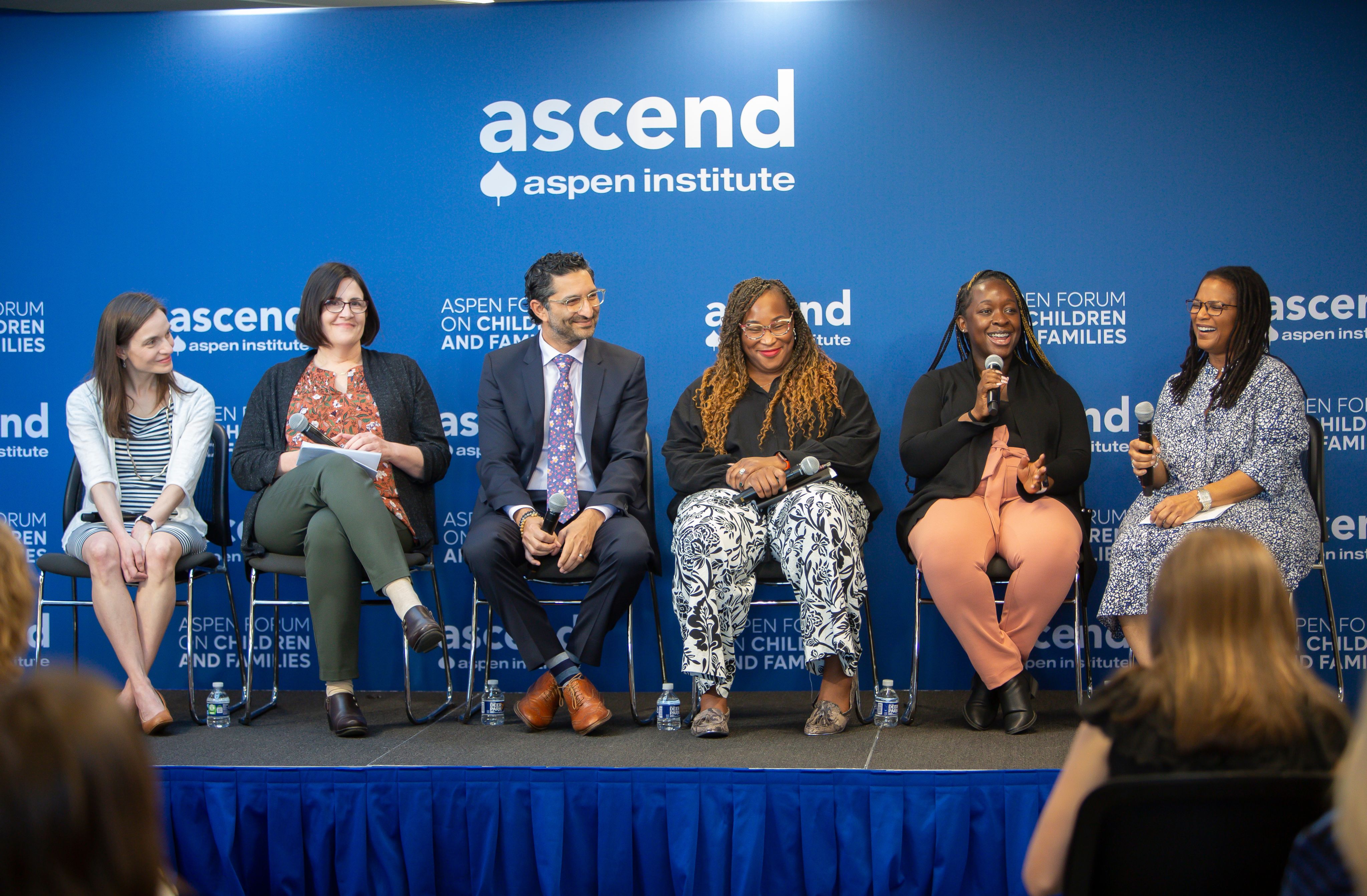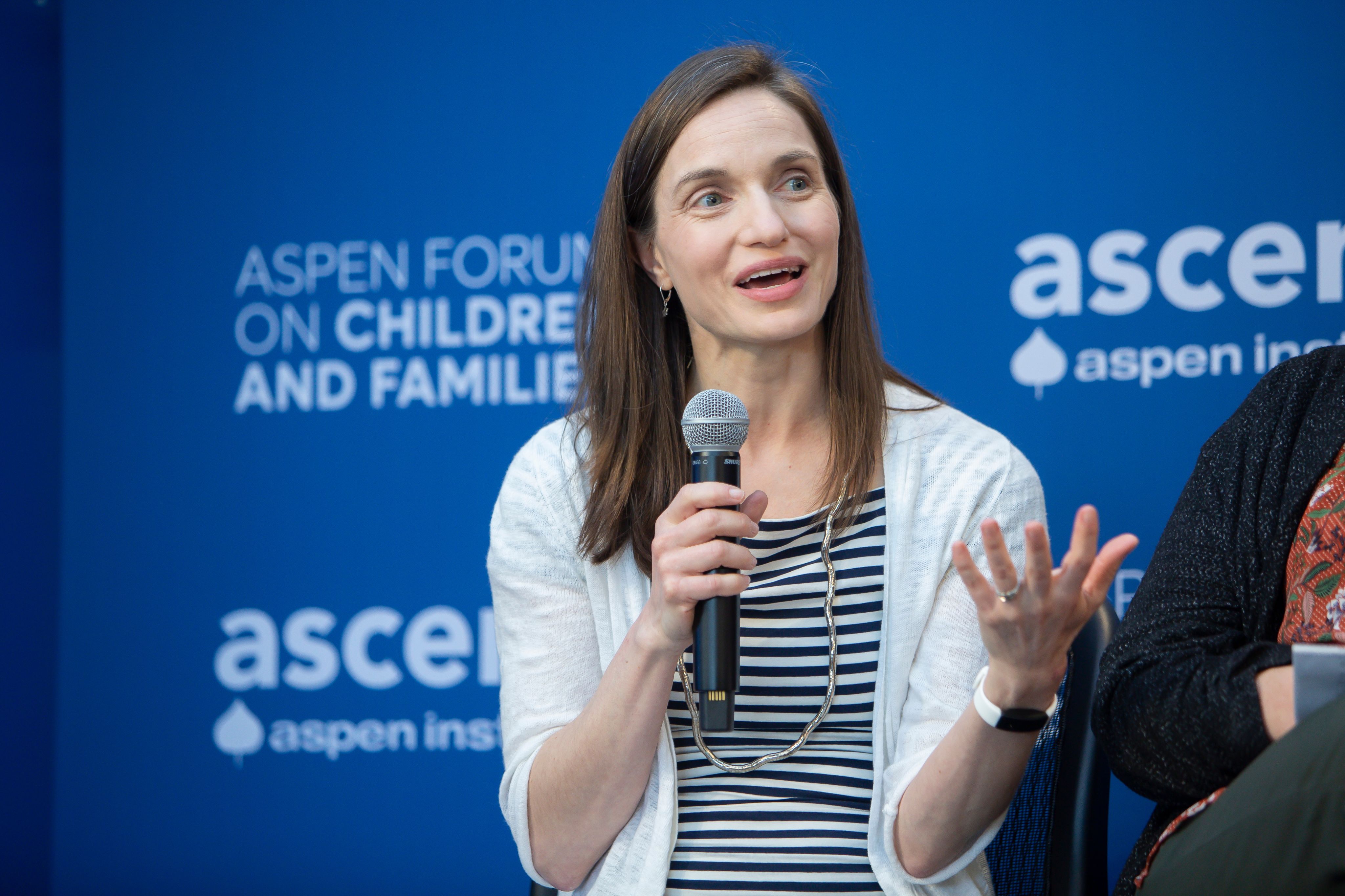Building Evidence
How Ascend convened a diverse group to shape a robust 2Gen Research Agenda

Starting in 2022, Ascend convened 42 researchers, funders, practitioners, and, crucially, parents around the same table. For these leaders, collectively called the 2Gen Building Evidence Learning and Action Community (2Gen BELAC), this was a chance to develop a research agenda for the two-generation (2Gen) field, something Ascend has been working on since its founding.
After 16 months of conversations and convenings, the group produced a comprehensive report – Building Evidence Together for a Better Tomorrow – that presents questions to both broaden and deepen the evidence base for the 2Gen field. The report seeks to inform not only researchers but also funders, policymakers, practitioners, and parents.
Their work is a testament to the power of radical collaboration. Creating a space where parents’ voices were valued and heard just as much as PhD voices was essential. To do that, Ascend built on strong connections forged with Ascend Network Partners over the years, as Ascend Managing Director Marjorie Sims explains.
“As our founder Anne Mosle always reminds us, change happens at the speed of relationships and trust. The work always starts with building close relationships,” Marjorie says. “Then having solid practices for engaging parents, fair compensation, articulating the time and the goals, being respectful of their voices throughout, and creating spaces for them to connect with each other are important as well.”
For Mirah Marcus-Garcia, a Parent Advisor with the 2Gen BELAC, the experience proved to be uplifting.
“I enjoyed sharing space with the other parents involved because they put me in a greatness that I personally was struggling to see,” Mirah says. “I also think and hope I helped change the negative stigmas surrounding Indigenous young parents.”

Emily Sama Miller (Photo by Ralph Aswang)
Emily Sama Miller (Photo by Ralph Aswang)
In total, the report focuses on 259 questions for the 2Gen field to consider as part of a research agenda. Each question represents a particular concern of parents, practitioners, researchers, and/or funders. Parents proposed questions like, ‘Do practitioners get to know the parents by name, as individuals?’ while practitioners asked things like ‘What information, tools, and supports do grandparents and other non-parental adult caregivers need?’
These questions provided clarification and guidance, but also challenged the research status quo. As Emily Sama-Miller, Principal Researcher at Mathematic, notes in the report, “Evaluators may need to be more flexible in considering whether the benefits of establishing a comparison group outweigh the cost to relationships in a given community.”
The report is the latest example of how Ascend’s legacy of radical collaboration continues to reshape the 2Gen field. From the release of the Two Generations, Once Future report and the successive launches of the Ascend Fellowship and Network to producing 2Gen outcomes frameworks, Ascend has shaped this emerging field.
But there is still progress to be made, and the goal is for the questions spurred by the Building Evidence Together for a Better Tomorrow report to inform future local, state, and federal policies that will ultimately advance intergenerational prosperity.
“The hope,” Marjorie says, “is that people who are developing learning, evaluation, or research strategies for 2Gen approaches will review the questions and select those that are useful to their work.”
What is 2Gen?
Two-generation (2Gen) approaches build family well-being by intentionally and simultaneously working with children and the adults in their lives together. 2Gen approaches center the whole family to create a legacy of educational success and economic prosperity that passes from one generation to the next.
